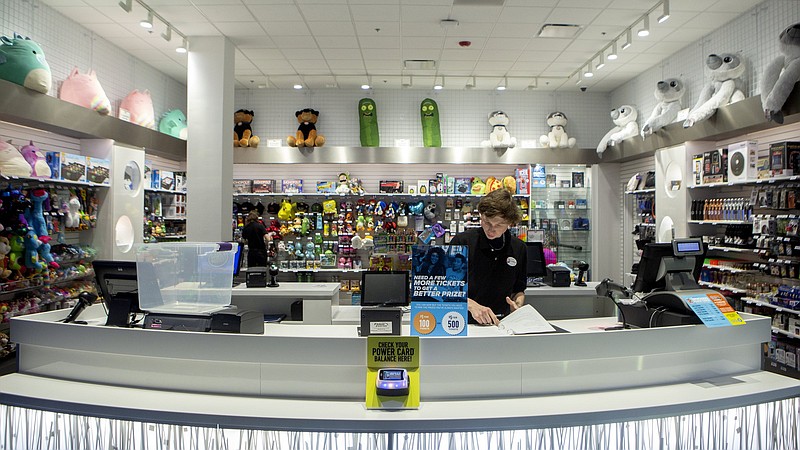CBL Properties could emerge from an expected bankruptcy filing as a smaller, nimbler company, but it still faces many of the same problems plaguing malls and brick-and-mortar retailers, experts say.
"It was the first to fall," said Nick Shields, senior analyst for investment research firm Third Bridge, about the Chattanooga-based shopping center company. "There very well could be others."
CBL officials said this week they plan to keep operating its stable of more than 100 properties nationally, including Hamilton Place and Northgate malls in the city, in spite of an expected Chapter 11 bankruptcy filing no later than Oct. 1.
A plan worked out with some lenders calls for reorganizing its debt amid the coronavirus pandemic, which has ravaged revenues at its centers due to the earlier lock down, store closings, and a slow return to face-to-face shopping.
But even before the outbreak, CBL was grappling with the changing tastes of shoppers when it comes to malls and department stores along with more online buying.
Shields said the issues regarding malls will remain at least through the coronavirus pandemic if not longer.
"A lot of retailers and department stores won't pay full rent until next year," he said. "That really hurts [CBL]."
Chris Kuiper, vice president of equity research at the firm CFRA Research, said CBL will have a better balance sheet as it moves past the possible bankruptcy filing.
But the key question is did CBL just get "over its skis" in terms of debt load, or will there be enough cash coming in from tenants to remake its malls into more financially reliable properties, he said.
"I'm of the opinion that the enclosed mall is not a form-factor people enjoy anymore, especially lower-class ones," Kuiper said. "There's no amount of balance sheet restructuring that will help. The underlying business hasn't improved."
Jim Campbell, chief investment officer and managing partner of Campbell Rooks Wealth Management in Chattanooga, said that "everything is on the table" for CBL moving forward and he thinks it may get rid of some of its poorer performing properties.
"Properties that don't make sense, they'll jettison," he said, adding that could happen though sales or just handing the banks the keys to the buildings. "They're well on their way to being a smaller, more focused company."
CBL officials said this month that it's already in discussions with lenders related to loans secured by four properties anticipating foreclosure or conveyance proceedings.
The properties are Park Plaza in Little Rock, Arkansas; Hickory Point in Forsyth, Illinois; EastGate Mall in Cincinnati; and Burnsville Center in Minneapolis.
Stephen Lebovitz, CBL's chief executive officer, said the company moving ahead will be stronger and more stable with an enhanced ability to execute its strategy of diversifying revenue sources and transforming traditional enclosed malls into suburban town centers.
In February, Lebovitz used the revamp of the Sears space at Hamilton Place mall is "a prime example" of its efforts to reinvent its shopping centers.
"We'll get more sales and traffic from new users," he said, noting the addition of Dick's Sporting Goods, Dave & Buster's and other nameplates will boost sales by at least three or four times.
Lebovitz said then that he wished the results of the redevelopments at its national portfolio of malls were more immediate.
"The mall business is in transition," he said. "We're responding by making changes. We're reducing our exposure to apparel retailers. We're confident in our strategy."
But then the coronavirus outbreak hit, with CBL saying the pandemic accelerated retailer fallout in the shopping center business by several years.
CBL said earlier this summer that real estate researcher Green Street Advisors forecasts more than half of mall-based department stores will close by 2021.
Shields said that CBL's reorganizing plan permits it added flexibility in the future and noted the company is trying to lease more space to restaurants and tenants that offer experiences. But, short-term, people are hesitant to engage in those experiences, he said.
Also, CBL's portfolio of malls isn't as strong as some other real estate investment trusts, such as Simon Group, Shields said.
Contact Mike Pare at mpare@timesfreepress.com. Follow him on Twitter @MikePareTFP.
